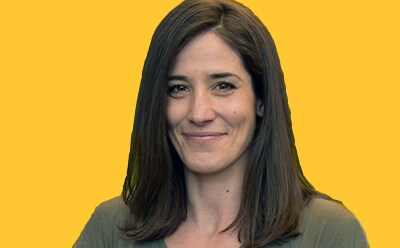
Meike Ramon is a cognitive neuroscientist and neuropsychologist whose work focuses on face processing and includes both fundamental and applied research. She tells us why she’s so passionate about her work and how she’s aiming to transform the role of facial recognition in policing and the legal system.
“I focus on ‘Super-Recognizers’ – people who naturally excel at face identity processing - I want to understand what makes them so good.”
My work began when I wrote a paper about newborn and infant facial recognition for a developmental psychology seminar, which led to an overambitious thesis. I developed and standardized tests to identify people suffering from developmental prosopagnosia (face blindness not caused by neurological trauma) and analyzed differences in their brain using functional magnetic resonance imaging (fMRI). Currently, I focus on ‘Super-Recognizers’ – people who naturally excel at face identity processing. I want to understand what makes them so good and how they differ from neurotypicals and automatic solutions.
“I want to contribute towards increasing the efficiency and fairness of legal processes.”
I believe, to ensure that law enforcement processes are fair, we need to understand the advantages and limitations of the tools at our disposal, be they humans or automatic solutions. Currently, humans still outperform automatic facial recognition systems, so, humans always make the final decision. Therefore, making sure that the most proficient humans perform the most critical jobs is sensible and essential.
Over the years, I have been working closely with international police agencies, advising government and policy makers on matters related to facial recognition. Since 2017, I have been the Scientific Advisor to the Berlin Police and State Office of Criminal Investigation. I think it’s empowering to create spaces where disciplines intersect – people with different skills and backgrounds come together and benefit from others’ knowledge through genuine collaboration.
In general, I draw inspiration from areas outside of science and academia. I find it helpful to zoom out of our research bubble and think about other peoples’ daily lives. Trying to connect both gives us the chance to discover and implement things that have a larger impact.
The relationships and experiences I have gained across the various places I have lived and worked in, have all helped me overcome the complex work challenges I have faced at one point or another.
My work is important for at least two reasons:
- It can advance our knowledge of brain functioning and contribute to science in general.
- I advise governments and law enforcement agencies tasked with maintaining public safety, by providing advice based on scientific knowledge and evidence. I want to contribute towards increasing the efficiency and fairness of legal processes.
FAQ
Q: What kind of mindset do you need to achieve your Next Great Impossible?
A: Nothing is impossible.
Meike Ramon: My Next Great Impossible
To continue reading please sign in or create an account.
Don't Have An Account?